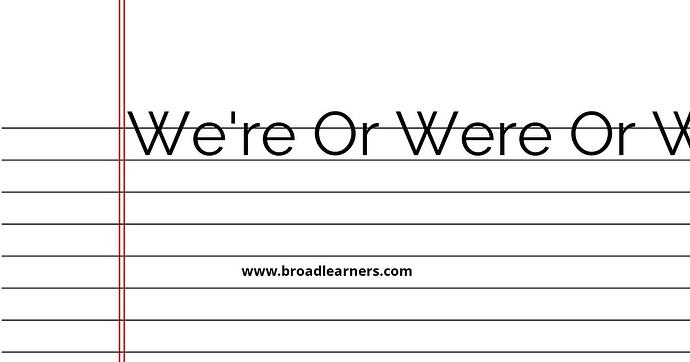'We're', 'were', and 'where' are commonly confused words in English grammar. Understanding the difference between 'we're', 'were', and 'where' is important to use them correctly in written and spoken English.
'We're' is a contraction of 'we are'. It is used to indicate the present tense of the verb 'to be' when referring to a group of people.
'Were' is the past tense of the verb 'to be'. It is used to indicate that something happened in the past.
'Where' is an adverb that is used to ask about or indicate a location or position.
Let's take a closer look at the meanings and usage of 'we're', 'were', and 'where'.
| 'We're' | 'Were' | 'Where' |
|---|---|---|
| The word 'we're' is a contraction of 'we are'. | The word 'were' is the past tense of the verb 'to be'. | The word 'where' is an adverb that indicates a location or position. |
|
|
|
To remember the difference between 'we're', 'were', and 'where', it can be helpful to remember that 'we're' is a contraction of 'we are', 'were' is the past tense of 'to be', and 'where' is used to ask about or indicate a location or position.
Here are some examples of correct usage:
- We're going to the movies tonight. (indicating the present tense of 'to be' when referring to a group)
- They were at the beach yesterday. (indicating that something happened in the past)
- Where is the nearest coffee shop? (asking about a location)
Remembering the correct usage of 'we're', 'were', and 'where' will improve your grammar and communication skills.
